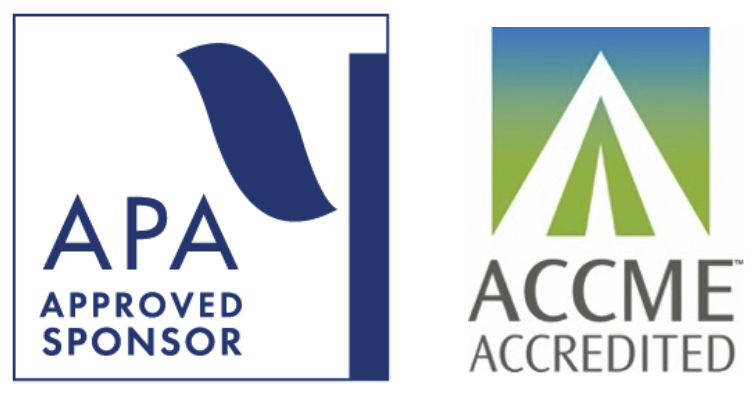CCSW mini-Module
| Program Title: | Working with Parents: A Complex and Essential Component of Child Psychotherapy |
| Dates: | Thursdays, September 19, 26; October 10, 17, 2024 |
| Time: | 07:15pm – 08:45pm PT |
| Instructors: | Lea Brown, LCSW and Amy Wallerstein Friedman, LCSW |
| Location: | San Francisco Center for Psychoanalysis This is an in-person class only; remote participation is not available. |
| Program Fee: | $ 75.00 General Admission *If you are a university student, in a pre-licensure clinical training program, or in a residency program, Reader is not included in the program fee. For details, please refer to the Reader Fee information below. |
| CME/CE: | 6 CME/CE credits available for $60 (for SFCP members) or $90 (for non-members) After the program ends, SFCP will email all participants a program evaluation form. The completion of this evaluation form is required for everyone who requests CME/CE credits. |
| Maximum Class Size: | 14 participants |
The aim of this four-session mini-module is to strengthen our understanding of that complex and essential relationship between our work with parents and with their children. Constructs of developmental stages of both parent and child and of parallel processes in psychodynamic work will help us develop our understanding of needs. Focus will include consideration of the critical question: How does who we are and the context in which we practice affect what we can offer?
Our aim is to help children and parents utilize their own relationships more effectively, so that they can live
with one another in greater harmony. —Cooper and Wanerman 1977
Week One:
We will focus on our purposes in child psychotherapy, define active alliances, and discuss the framework of developmental stages to help us assess both parent and child needs and dilemmas. How do we think about our relationship with parents? Where is the boundary? What is our role? How do we intervene and always hold the relationship with the child in mind?
Week Two:
Read: Fraiberg, Selma, Edna Adelson, Vivian Shapiro, “Ghosts in the Nursery”
We will focus on early parent-child relationships and interventions, consider implications for our relationships with parents, working towards a shared goal of emotional health. Participants will be encouraged to present short vignettes of their work to use has a basis for our discussion.
Week Three:
Read: Cooper, Shirley, The Treatment of Parents
Focus this week is on latency-age engagement and parental needs. We will continue to look at parent-therapist and parent-child relationships through participant and instructor case vignettes.
Week Four:
Read: Riera, Michael, Uncommon Sense in Parents and Teenagers, Chapter 1, Celestial Arts, Berkeley CA, 1995.
We will again move the development lens that helps us think about the parent child relationship at various ages.
Focus will be adolescence and the particular developmental demands on parents of adolescents. We will continue to use case material from the participants for these discussions. We will make time for a recap of overarching concepts and ideas which participants find useful for their work moving forward.
Educational Objectives:
Upon completion of this activity, the learners will be able to:
- demonstrate the importance of the therapist relationship and involvement with the caregivers.
- apply development knowledge to inform the work with caregiver.
- describe the struggles and dilemmas of a caregiver at various development stages.
Reader Fee
Charges for reading material required for the seminars are not included in tuition. Your readers will be prepared by CopyCentral, and costs are based upon copyright laws and charge based on the content of the readers. The SFCP Office will inform you when your readers are available to be purchased from CopyCentral’s website. Please note that CopyCentral may take 2 weeks to print and mail the readers to you, so we recommend you to purchase them as soon as they become available.
Refund Policy
- There will be a full refund if one requests to drop the program on or before August 18, 2024.
- There will be a 10% cancellation fee if one requests to drop the program on or after August 19, 2024.
Accreditation Statement for CME/CE Sponsorship and Disclosure Statement

ACCME Accreditation Statement
This activity has been planned and implemented in accordance with the accreditation requirements and policies of the Accreditation Council for Continuing Medical Education (ACCME) through the joint providership of American Psychoanalytic Association and San Francisco Center for Psychoanalysis. The American Psychoanalytic Association is accredited by the ACCME to provide continuing medical education for physicians.
AMA Credit Designation Statement
The American Psychoanalytic Association designates this live activity for a maximum of 6 AMA PRA Category 1 Credit(s)™. Physicians should claim only the credit commensurate with the extent of their participation in the activity.
Disclosure Statement
The APsA CE Committee has reviewed the materials for accredited continuing education and has determined that this activity is not related to the product line of ineligible companies and therefore, the activity meets the exception outlined in Standard 3: ACCME’s identification, mitigation and disclosure of relevant financial relationship. This activity does not have any known commercial support.
PSYCHOLOGISTS: The San Francisco Center for Psychoanalysis is approved by the American Psychological Association to sponsor continuing education for psychologists. The San Francisco Center for Psychoanalysis maintains responsibility for this program and its content.
Psychologists attending SFCP events approved for CE credits may report AMA PRA Category 1 Credit(s)™ toward their CE requirements. Psychologists self-certify the number of hours they have completed on their renewal form (whether online or paper).
LCSWs/MFTs: The San Francisco Center for Psychoanalysis is a continuing education provider that has been approved by the American Psychological Association, a California Board of Behavioral Sciences recognized approval agency
Psychologists, Social Workers, and Marriage and Family Therapists will be awarded AMA PRA Category 1 Credit(s)™ on an hour for hour basis; see the program description for the maximum of credits awarded for each program.
Commercial Support: None

